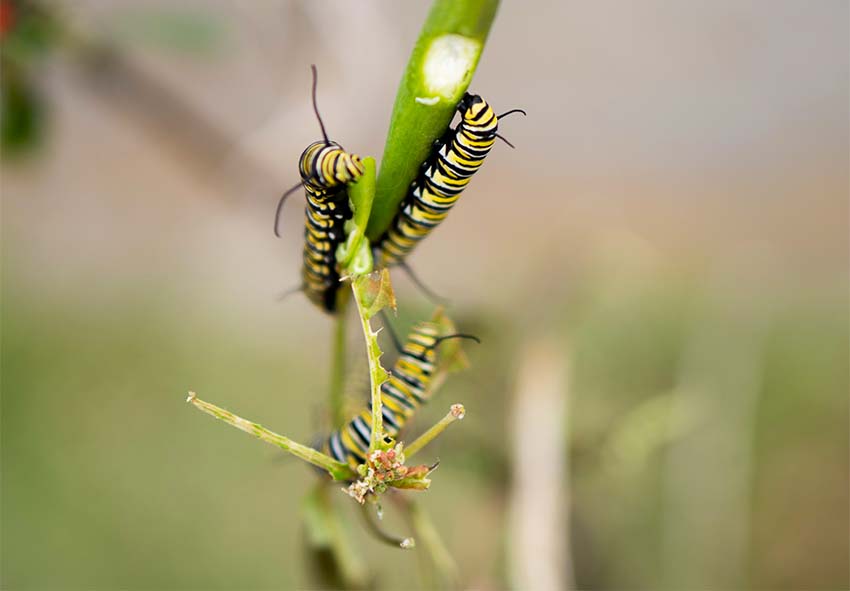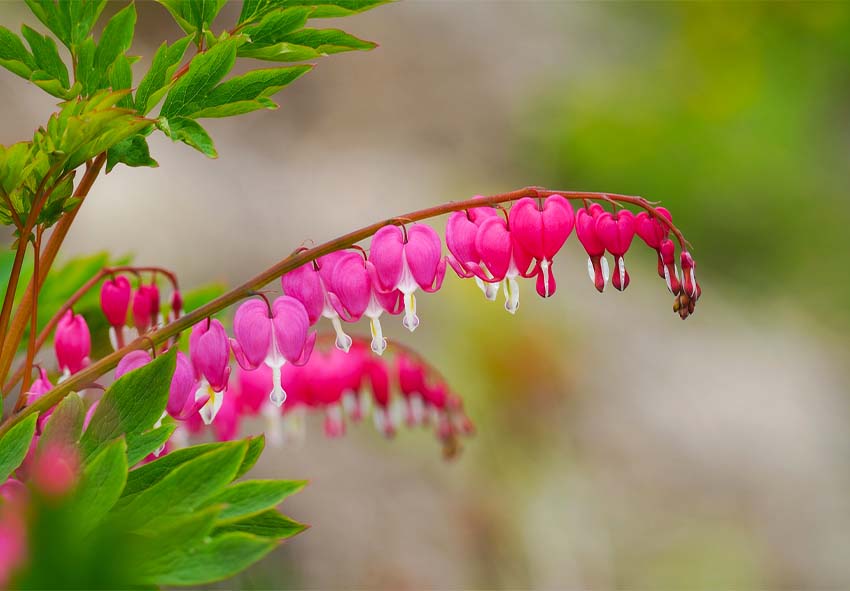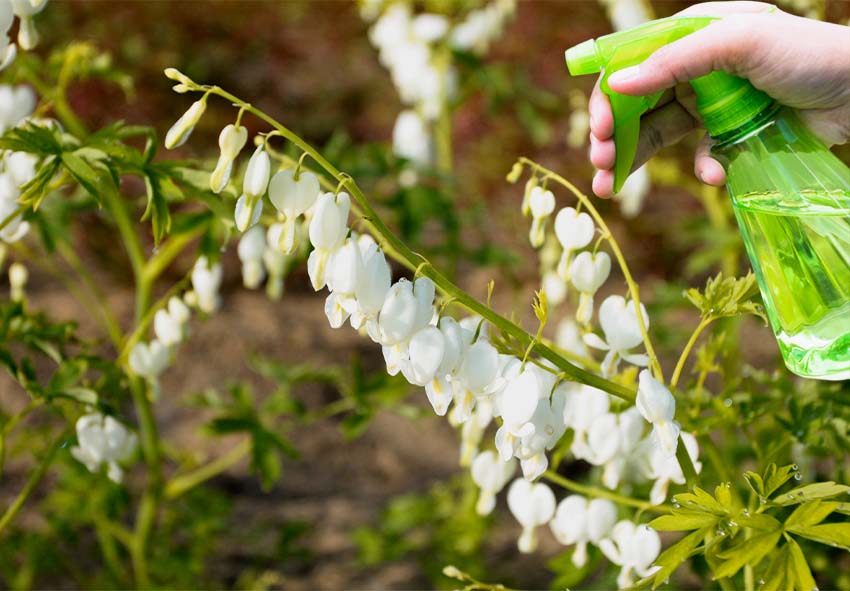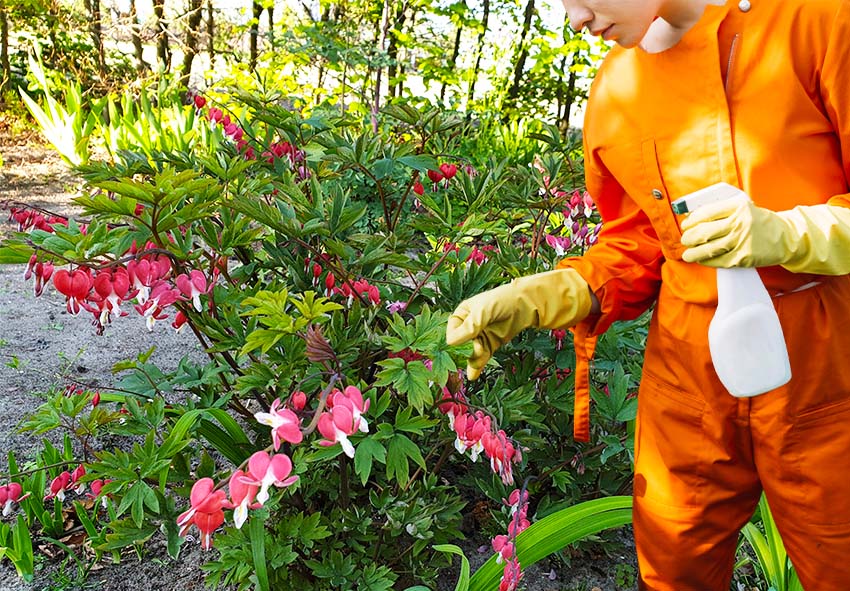Dicentra, commonly known as Bleeding Hearts, are beloved by gardeners for their unique heart-shaped flowers and delicate foliage. These plants add a touch of elegance to any garden setting. However, like all plants, Dicentra is susceptible to pest infestations that can compromise their health and beauty. Effective pest control is crucial for maintaining the vitality of your Dicentra plants and ensuring they thrive throughout the growing season. You can find even more useful information about care for Dicentra in our complete guide for Dicentra.
Common Pests Affecting Dicentra

Dicentra plants, with their delicate, heart-shaped blooms, are a favorite in many gardens. However, they are not immune to pest infestations, which can hinder their growth and flowering. Understanding the common pests that affect Dicentra is essential for effective management and ensuring the plants remain healthy and vibrant.
- Aphids
Aphids are small, soft-bodied insects that come in various colors, including green, black, and white. They typically gather on the undersides of leaves and new growth, sucking sap and excreting a sticky substance called honeydew. This honeydew can attract sooty mold, further harming the plant. Signs of aphid infestation include curled, yellowing leaves, and stunted growth.
- Slugs and Snails
Slugs and snails are mollusks that leave a slimy trail as they move. They primarily feed at night and hide during the day, making them difficult to spot. The most obvious signs of their presence are irregular holes in the leaves and flowers of Dicentra, as well as the slime trails they leave behind. These pests can cause significant damage, especially to young plants.
- Spider Mites
Spider mites are tiny arachnids that can be red, yellow, or green. They thrive in hot, dry conditions and are usually found on the undersides of leaves. Signs of spider mite infestation include tiny yellow or white specks on the leaves, webbing on the plant, and overall leaf discoloration and drop. Severe infestations can weaken Dicentra plants, making them more susceptible to other pests and diseases.
- Caterpillars
Caterpillars, the larvae of moths and butterflies, can also be problematic for Dicentra. They chew on leaves, creating large, irregular holes. Some common caterpillars that attack Dicentra include the Eastern tent caterpillar and the cabbage looper. Damage from caterpillars can lead to defoliation and reduced vigor in the plants.
Preventive Measures for Pest Control

Preventing pest infestations is always better than dealing with them after they occur. Implementing preventive measures can significantly reduce the risk of pests damaging your Dicentra plants. By adopting proper planting techniques, regular inspections, and soil management practices, you can create an environment that is less conducive to pests.
Regular Inspection
Regularly inspecting your Dicentra plants is vital for early detection and management of pest problems. Check the undersides of leaves, stems, and new growth for signs of pests. Early identification allows you to address issues before they become severe.
Proper Planting Techniques
Proper planting techniques can significantly reduce the risk of pest infestations. Here are some tips for you:
- Choose the Right Location: Select a site with partial shade to protect Dicentra from harsh sunlight. Ensure good air circulation to reduce humidity around the plants, which can deter pests.
- Soil Preparation: Use well-draining soil to prevent waterlogging and root rot. Enrich the soil with organic matter like compost to improve fertility and structure.
- Proper Spacing: Space Dicentra plants adequately to allow for air circulation. Maintain a distance of about 1 to 2 feet between plants to reduce competition for nutrients and moisture.
- Planting Depth: Plant Dicentra at the correct depth, with the crown just at or slightly below the soil surface. Ensure the roots are spread out and covered with soil to promote healthy growth.
- Mulching: Apply a layer of mulch around the plants to retain moisture and regulate soil temperature. Keep the mulch away from the stems to prevent rot and pest infestations.
- Watering: Water Dicentra consistently, ensuring the soil remains moist but not waterlogged. Avoid overhead watering to reduce the risk of fungal diseases and pests.
- Regular Monitoring: Inspect newly planted Dicentra frequently for signs of pests or disease. Address any issues promptly to prevent infestations from spreading.
Soil and Mulch Management
Healthy soil is the foundation of healthy plants. Use organic mulch around your Dicentra to retain soil moisture and regulate temperature, which can help deter pests. However, ensure the mulch is not too thick and does not touch the stems of the plants, as this can create a habitat for pests. Regularly check and amend the soil to maintain its health.
Natural Pest Control Methods

For gardeners who prefer eco-friendly approaches, natural pest control methods offer effective solutions without the use of harsh chemicals. Utilizing beneficial insects, homemade remedies, and companion planting can help manage pest populations and protect your Dicentra plants in a sustainable way.
Beneficial Insects
Beneficial insects like ladybugs, lacewings, and parasitic wasps can help control pest populations. These insects prey on common pests such as aphids and caterpillars. To attract beneficial insects, plant a variety of flowering plants that provide nectar and pollen. You can find more information about иeneficial insects for other plants on our blog.
Homemade Remedies
Homemade pest control solutions can be effective and environmentally friendly. Here are some effective tools:
- Soap and Water Spray: Mix a few drops of mild dish soap with water.Spray on affected plants to remove aphids and other soft-bodied pests.
- Garlic Spray: Blend garlic cloves with water, strain, and dilute. Use as a spray to deter a variety of pests.
- Neem Oil Solution: Mix neem oil with water and a few drops of dish soap. Spray on plants to control insects and fungal infections.
- Chili Pepper Spray: Combine chili powder or crushed chili peppers with water. Apply to plants to repel pests like caterpillars and slugs.
- Baking Soda Solution: Mix baking soda with water and a bit of liquid soap. Use as a fungicide to treat powdery mildew and other fungal issues.
Companion Planting
Companion planting involves growing plants together that benefit each other. Marigolds, for example, can repel many pests that affect Dicentra. Planting garlic and onions nearby can also deter aphids and other harmful insects.
Chemical Pest Control Options

When natural methods and preventive measures are insufficient, chemical pest control options may be necessary. Both organic and synthetic pesticides can effectively address severe infestations. Understanding when and how to use these chemicals safely can help minimize their impact on the environment while ensuring the health of your Dicentra plants.
Organic Pesticides
Organic pesticides, such as insecticidal soap and neem oil, are effective against many pests without harming beneficial insects or the environment. Follow the instructions on the label for safe and effective application.
Synthetic Pesticides
In cases of severe infestations, synthetic pesticides might be necessary. These should be used as a last resort due to their potential impact on non-target organisms and the environment. When using synthetic pesticides, adhere strictly to the recommended usage guidelines.
When to Use Chemical Controls
Chemical controls should be considered only when other methods have failed and the pest infestation threatens the health of your Dicentra plants. You should use chemicals in these cases:
- Severe Infestations: When pests are causing significant damage and natural methods are ineffective.
- Persistent Pests: For dealing with pests that keep returning despite other control measures.
- Large-Scale Infestations: When the infestation affects a large number of plants and manual control is impractical.
- Preventing Spread: To quickly control pests and prevent them from spreading to other parts of the garden.
Evaluate the risks and benefits carefully before application.
Conclusion
Maintaining healthy Dicentra plants requires vigilance and proactive pest control measures. By implementing the preventive and control methods outlined in this guide, you can enjoy the beauty of your Bleeding Hearts without the worry of pest damage. Remember, a healthy plant is the best defense against pests.
Frequently Asked Questions (FAQs) about Pest Control for Dicentra
1. What are the most common pests that affect Dicentra plants?
The most common pests that affect Dicentra plants include aphids, slugs and snails, spider mites, and caterpillars. Each of these pests can cause significant damage to the foliage and overall health of the plants.
2. How can I prevent pest infestations in my Dicentra plants?
Preventing pest infestations involves regular inspection of plants, proper planting techniques (such as adequate spacing), and maintaining healthy soil and mulch. Implementing these preventive measures helps reduce the likelihood of pest problems.
3. Are there natural methods to control pests on Dicentra plants?
Yes, natural pest control methods include attracting beneficial insects, using homemade remedies such as garlic or neem oil sprays, and practicing companion planting. These methods are effective in controlling pests without using chemicals.
4. When should I consider using chemical pesticides for my Dicentra plants?
Chemical pesticides should be considered as a last resort when natural methods and preventive measures fail to control severe infestations. It’s important to follow application guidelines carefully to minimize risks to the plants and the environment.
5. Can I order Holland Dicentra from your online store?
Certainly! At our online store Dutch-bulbs.com, we offer a wide selection of Dicentra plants, including varieties sourced from Holland. We take pride in offering high-quality plants sourced from reputable growers, ensuring that you receive healthy and vibrant specimens for your garden. Feel free to explore our online store and place your order for Holland Dicentra today!
Published: 19.06.2024
